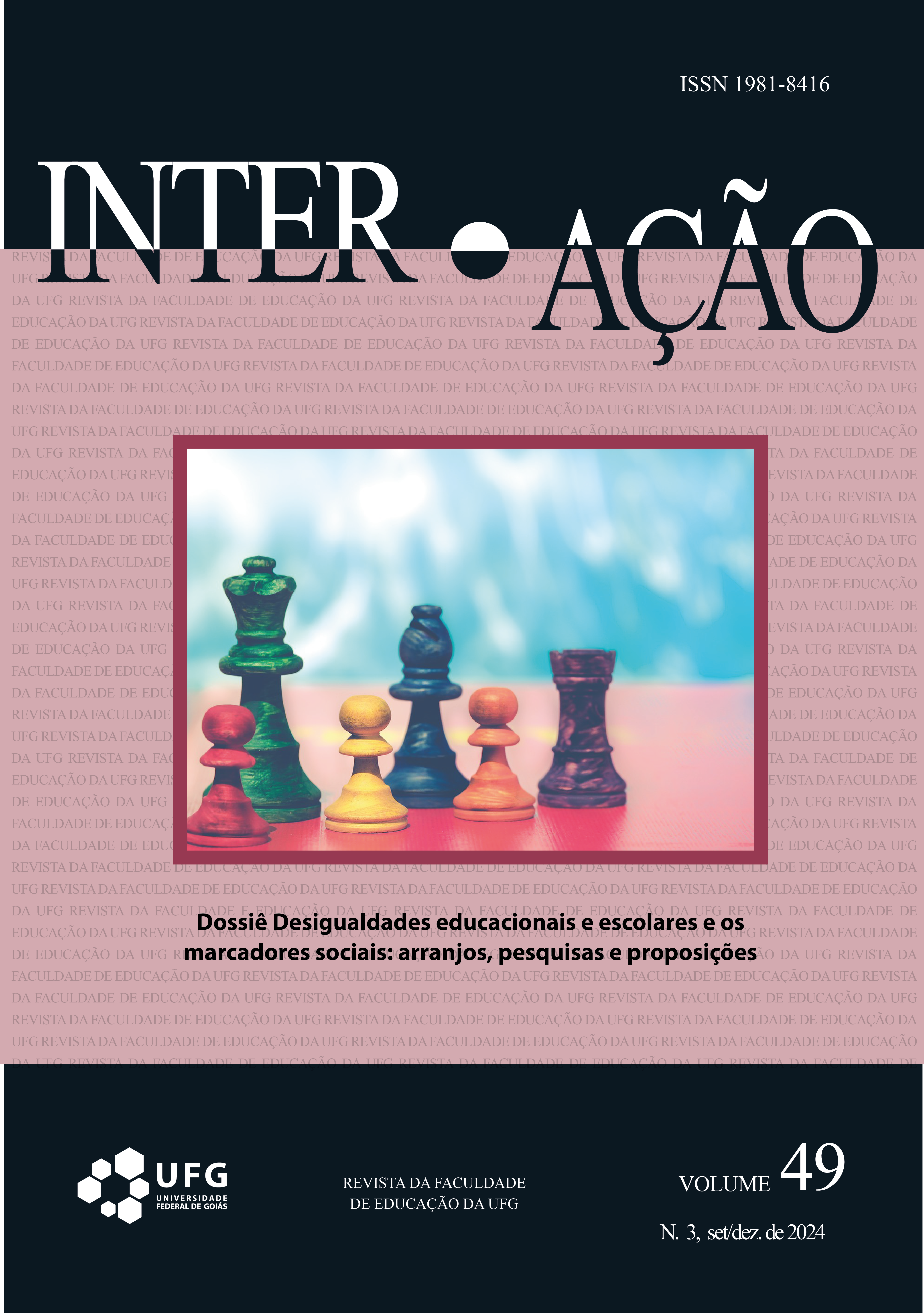TRASLUCIR: VISUALITY AND WORKSHOPS IN INDIGENOUS COMMUNITIES OF BRAZIL AND ECUADOR
DOI:
https://doi.org/10.5216/ia.v49i3.80413Keywords:
Territory; Memory; Visuality; Indigenous People.Abstract
This account addresses and provides a brief overview of the cartographic work and audiovisual maps created in and through playful workshops in various indigenous communities in Brazil and Ecuador. These workshops utilize arguments, narratives, and tools that diverge from the Aristotelian process and linear learning, focusing insteadon the body, territory, and memory. The setoolsthen become a bridge for connection and resources for main taining the historical and collective memory of the peoples, serving as a foundation for the struggle in the production and reproduction of life, and ultimately materializing in audiovisual projects.
Downloads
References
ANDERSON, B. Comunidades imaginadas: Reflexiones sobre el origen y la difusión del nacionalismo. Trad. Eduardo L. Suárez. México: Fondo de Cultura Económica, 2006.
FREIRE, P. Pedagogía del Oprimido. 04310, Mexico: Siglo XXI Ediciones. 1970
GIROUX, H. Igualdad educativa y diferencia cultural. Barcelona: El Roure. 1992
GIROUX, H.; Shannon, P. (Eds.). Cultural Studies and Education: Towards a Performative Practic. Nueva York/Londres: Routledge.1997
GIROUX, H. Sociedad, cultura y educación. Madrid: Miño y Dávila. 1998
GIROUX, H. Beyond the Corporate University: Culture and Pedagogy in the New Millennium. Lanham. Madrid: Rowman&Littlefield. 2001.
MCLAREN, P. La pedagogía crítica revolucionaria. El socialismo y los desafíos actuales- -1ª ed. Buenos Aires, Herramientas. 2012
TIBLE, J. Política Selvagem. GLAC edições& n-1 edições. São Paulo. 2022
Published
Versions
- 2025-02-11 (2)
- 2024-12-20 (1)
How to Cite
Issue
Section
License
Copyright (c) 2024 Juan Andrango

This work is licensed under a Creative Commons Attribution-NonCommercial 4.0 International License.
Inter-Ação uses the Creative Commons Attribution 4.0 License for Open Access Journals (Open Archives Initiative - OAI) as the basis for the transfer of rights. Open access means making documents available on the Internet free of charge, so that users can read, download, copy, distribute, print, search, or link to the full text of documents, process them for indexing, use them as input data for software programs, or use them for any other lawful purpose, without financial, legal, or technical barriers.
Authors publishing in this journal agree to the following conditions:
1) Authors retain copyright and grant the journal the right of first publication, with the work simultaneously licensed under the Creative Commons Attribution License, which permits redistribution of the work with attribution and first publication in this journal.
2) Authors are permitted to enter into additional, separate agreements for non-exclusive distribution of the version of the work published in this journal (e.g., for publication in an institutional repository or as a book chapter), with attribution and first publication in this journal.
3) Authors are permitted and encouraged to publish and distribute their work online (e.g. in institutional repositories or on their home page) at any time before or during the editorial process, as this may generate productive changes as well as increase the impact and citation of the published work.















